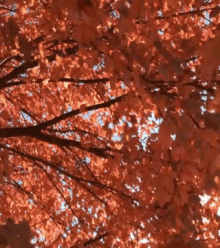I hear and behold God in every object, yet understand God not in the least.
Be curious, not judgmental.
In the faces of men and women, I see God
-Walt Whitman
I am no one important. A blond girl from the West coast raised in a conservative Christian family. I was taught from a young age to examine God through a small lens which to me felt opaque and formulaic. Perhaps that is why I have spent so much of my life trying to palpate the impalpable, trying to explain the inexplicable.
God. Cosmic consciousness. The spirit behind what meets the eye. It is everywhere. It imbues every rock and every tree. It is every worm in the soil, the blueprint of every being, the face of every man and every woman.
I did trail crew one summer in the Bob Marshall wilderness in Montana. The vast expanse of jagged peaks, river valleys, hidden lakes and untamed mountain wilderness reached inside of my chest and instilled within me a sense of reverence for this wanton, untouched terrain.
My hands and my feet bore perpetual blisters from the back-breaking labor of clearing trees and digging trails, but my heart was in love. Here in the mountains I experienced a feeling of both solitude and belonging.
One Saturday while out hiking with my friend Karen, we came within 10 feet of a grizzly bear. The bear, startled, rose up onto its hind legs, towering above us.
Remembering that making noise was the protocol when encountering a grizzly, I began belting out “Glory Glory Hallelujah.” Karen, quickly assessing the situation, joined in singing with me. The bear turned and ran into the the forest.
I’m not sure why I picked this song, or to sing at all, but it certainly put a theatrical spin on the moment, belting out the battle hymn of the republic in the middle of the most remote wilderness in the US where not another human could be found for miles other than Karen and I.
Glory Glory Hallelujah. Perhaps this pro-union spiritual written during the heart of the American Civil War, was on the tip of my tongue that day because in that moment, seeing the grizzly – the embodiment of the wanton Wild West, I felt more alive than I ever had in my whole life. And it was glorious.
Two summers earlier when I was 17, I had gone with a group of students to Thailand to teach English to school children in Chiang Mai, and help lay irrigation pipes for a remote Lahu hilltribe in the North. There I witnessed a predominantly Buddhist culture from a distance. It felt exotic and foreign like the smell of an incense that you can’t quite decipher.
The people had loved my pale skin and blue eyes, and my friend Trudy’s freckled complexion and long locks of red hair that burned golden like the sunset. To them, we were strange beings from a faraway land. They took photos with polaroid cameras, all crowding in together with us in the middle. In the photos they toted peace signs and radiant grins.
The summer after that I did a trek in Northern India and saw thousand-year old monestaries hanging from sheer cliff walls. I walked in a group of high school seniors along desert terrain in a single line procession. The days bled into each other. We stopped speaking. Our minds became empty like the landscape.
The Mahayanu Buddhists here lived in yak dung houses. When they saw us, a procession of 13 teens with 3 guides, they invited us in and made us strong black tea with melted yak butter. They were generous and curious. They spoke no English.
We would thank them with the only Kashmiri word we had learned, “Juleh.” Juleh means hello, goodbye, thank you, how are you, nice to meet you, and you’re welcome. The human experience distilled into one simple, magical word.
We passed tattered prayer flags tied to rickety sticks that flapped in the wind as we climbed in elevation and crossed mountainous passes. The monasteries held the energy of many generations. Their window-framed views of the Himalayas were breathtaking and melancholy in their vast and lonely expanse.
I felt like an agate among jade rocks, longing to feel at home here, but always feeling alien, like my sensory perception did not have enough fassets to absorb the full spectrum of this world that was so laden with ancient spirits. There was both a simplicity and an opulence here. The hilltribes lived in intimate proximity to this land that they revered. A land that was woven into their religion and their very sense of identity.
God/spirit/universe. Every creature, every culture, every landscape, every person is imbued with a different flavor. And it is – we are – I am – you are – glorious.

